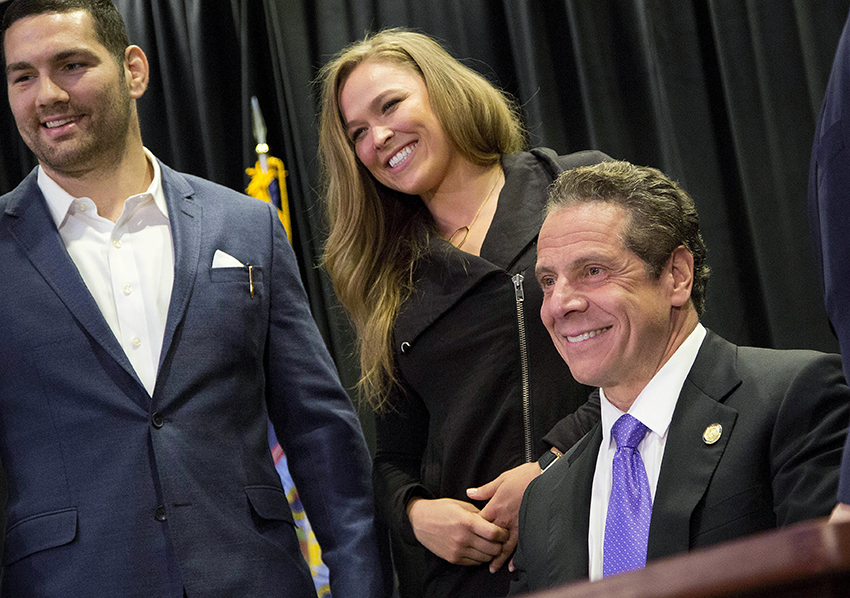If you’ve ever gone house-hunting you’ve learned how to look at a complicated object, take it apart and individually evaluate each piece. I bet you didn’t know that you also do that with women, all the time.
We’ve been taught to constantly physically evaluate women, and it’s impacted our brain functions. A study published in the European Journal of Social Psychology demonstrated that both genders view women as we do objects, a compilation of (body) parts, while we see men more fully, as whole people. We use local processing when we look at “composites of attractive parts” in things like a house … or a woman. But we use global processing when we look at men. Personally, I would like to be viewed as a New England colonial house.
So how do we as women and men learn to stop dehumanizing women? Clearly, we’ve got to focus more on what women do or say, rather than how they look.
But even the most influential women in the world face this physical pressure. Ronda Rousey, an Olympian judo bronze medalist and one of the best MMA fighters in the world, has been criticized for having a masculine body.
Tina Fey’s profile of Rousey in Time magazine’s The 100 Most Influential People encouraged readers to “[imagine] if we could teach our daughters to value their bodies for what they can do, not for how others think they look.”
Unfortunately, Rousey undermined this message of empowerment in a video last July, in which she said, “I think it’s femininely badass as fuck because there’s not a single muscle on my body that isn’t for a purpose, because I’m not a do-nothing bitch.”
Fey and Rousey are working together on an upcoming film called “Do Nothing Bitches.” Encouraging women to be strong is a wonderful goal, but we cannot allow this hateful, sexist phrase into the feminist lexicon.
This experience should teach an important lesson — in trying to fight sexism it can be easy to perpetuate it by alternate means. While she aimed the statement at challenging a narrow concept of femininity, she put down other women in the process.
Janet Davis, professor of American Studies and Women and Gender Studies, says Rousey’s statement does not further equality.
“The thing to resist is that kind categorization that in itself reproduces those forms of sexism,” Davis said. “There are so many different ways of being female that should be accepted.”
The stereotypical woman who hypersexualizes herself does exist, and maybe she would exist in a non-patriarchal society as well. But, if we want women to figure out who they are without these sexist pressures, we need to replace the negative messages that tell women who they shouldn’t be with positive messages that they can choose to be whoever they want to. We just need to emphasize how much latitude they have to be whoever they want. This is what will create a diversity in expression of womanhood.
Only by giving women this freedom do you allow them their full humanity. So ask girls what they want to accomplish in their hobbies and careers, teach them the importance of being kind and intelligent, praise them for hard work instead of being cute, and do everything you can do ignore their appearance.
Boushka is a psychology sophomore from El Paso.





















